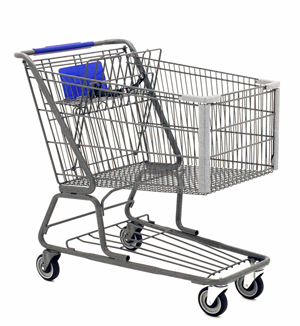#67 What is it with global retailers?
In a recent post, Australian business blogger Andre Sammartino reports that South African grocer Pick’n’Pay has sold off its Franklins supermarkets (“Australia’s Original Discount Grocer”) to the biggest Australian grocery wholesaler Metcash. It’s not the first time that Franklins has been sold off after a somewhat unsuccessful takeover. In the late 1970s Franklins was sold to Dairy Farm International who then put it on the market again in 2001 (which was when Pick’n’Pay acquired it). Ironically, Franklin’s new owner Metcash was once South African-owned itself. Besides the mere fact, the interesting observation is the striking frequency with which retailers fail in international markets – WalMart in Germany (and some other countries), Marks and Spencer in the United States (and Hong Kong), Home Depot in Chile, The Gap in Germany, to name but a few. And even more interesting is the question why that is. Using common concepts from the strategic management literature, we could say that it’s either that those companies have not been ready for the markets or that the markets haven’t been right for those companies. The former fits nicely with the structure-conduct-performance (SCP) paradigm. The SCP, in essence, says that it’s all about figuring out how the industry you’re in works and then finding your spot and the selecting an appropriate strategy. Performance will result almost automatically. Assuming that global retailers know how their industry works (even in distant country markets), they must therefore simply have picked the wrong strategy (or executed it poorly). Or, in other words, they may simply not have been ready for the challenges presented by those markets. Under the resource-based view (RBV), we might assume that some of these global retailers possess unique resources and capabilities (that according to the theory should lead to superior performance), but failed to select those markets where these would actually be advantageous. Instead, they chose markets in which their resources and capabilities were not useful or even harmful to their success. So, if you are a retailer and you like theory: next time, do your homework! And if you’re a retailer and you’re more hands-on: well…. do your homework!

September 4, 2010 @ 11:27 pm
I find this interesting that the large organizations mentioned, Wal-mart, Marks and Spencer, Game, and Home Depot, have failed in global markets. One would think large businesses that want to venture in foreign market would gather a plethora of market intelligence and market research before making this large leap. It seems that there was little thinking outside the box and the thought process that, “local market strategies would work in all other geographic markets.” This is clearly obvious from the listed companies. When venturing into foreign markets, organizations need to think outside the box to discover what specific geographic markets demand. A sweater that sells great in Canada will not have the same sales results for a global market such as Ecuador. A lesson from real estate can be applied to retailers’ international aspirations,”Every market is different.” With these simple words, executives can realize that demand for differentiated products are not the same in the global market.
November 12, 2010 @ 2:18 am
Its true, “Do your homework.” nearly all of the retailers in the example failed to understand the market they are in. They had great success in their home market and in some foreign markets but fail miserably at some point. These retailers believe their strategies, which happened to work in some market,s must be fool proof then come find themselves gasping for air. I think some of the past success may have come from dumb luck by picking a market, maybe not intentionally, that is similar to their home market. Then they enter a market who’s customers possess very different cultural values and spending habits than the markets of their previous ventures and fail miserably. Before entering a foreign market a retailer needs to study not only if the economy is able to support them but also the socio-cultural habits of the market. They need to study the material culture of the people to see what technologies drive and influence their habits. In Europe people tend to veer away from big box stores and shop a day at a time, they enjoy a neighborhood store feeling opposed to the warehouse store. cultural preferences like these will ruin companies if they fail to do research. If entering a market you must tailor your company to appease its socio-cultural preferences of find a market which already prefers what you have to offer.
May 5, 2020 @ 8:03 pm
Good afternoon, I was just taking a look at your website and submitted this message via your feedback form. The contact page on your site sends you messages like this to your email account which is the reason you are reading through my message right now right? That’s half the battle with any kind of advertising, getting people to actually READ your ad and this is exactly what you’re doing now! If you have an advertisement you would like to promote to tons of websites via their contact forms in the US or anywhere in the world let me know, I can even target specific niches and my pricing is very reasonable. Shoot me an email here: Trinitybeumer@gmail.com
please take me off this list https://bit.ly/3eOn4NP